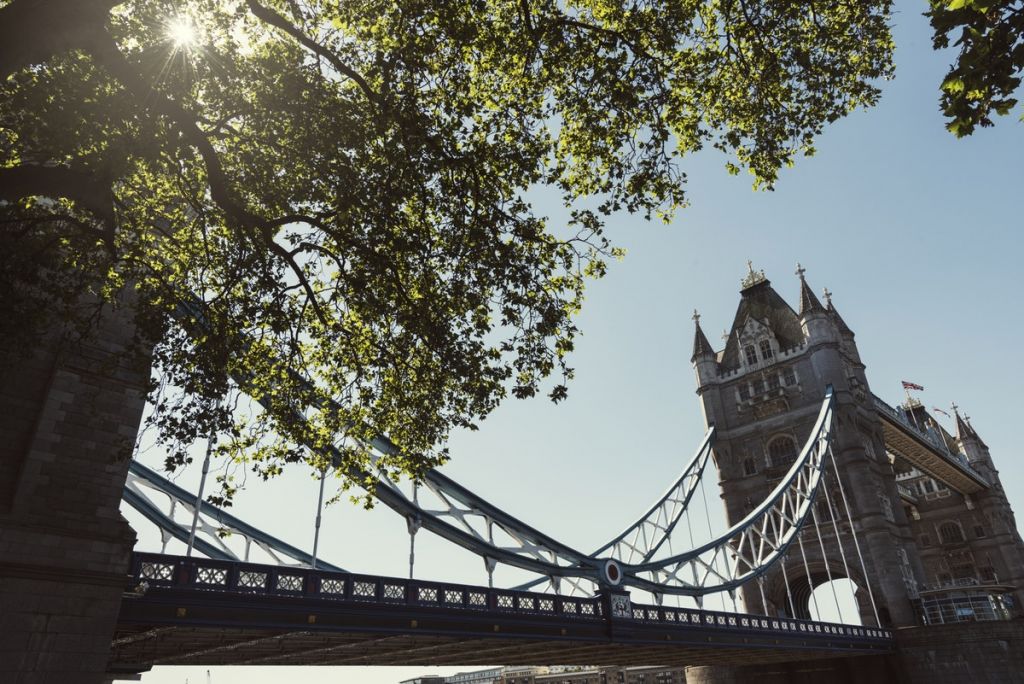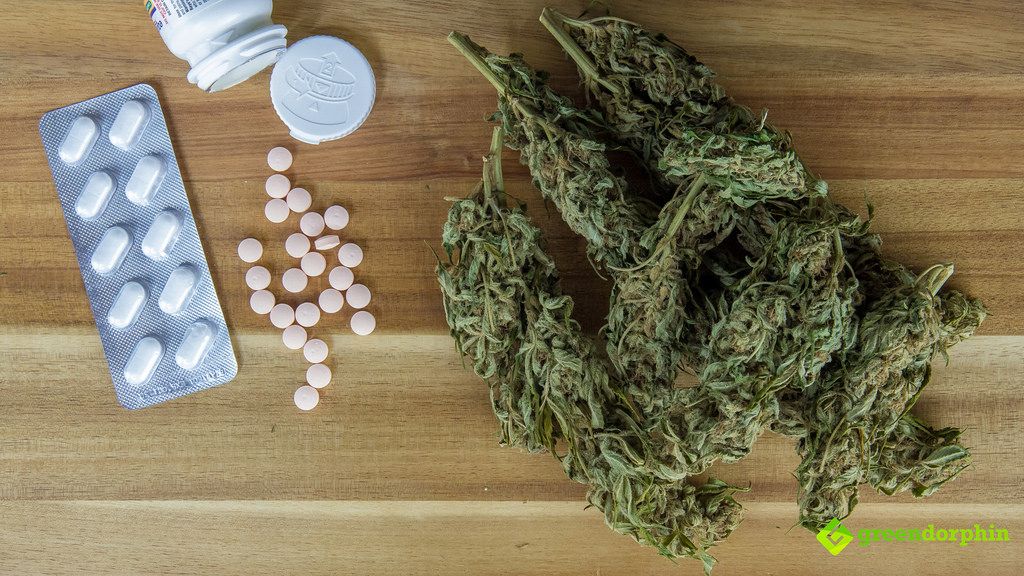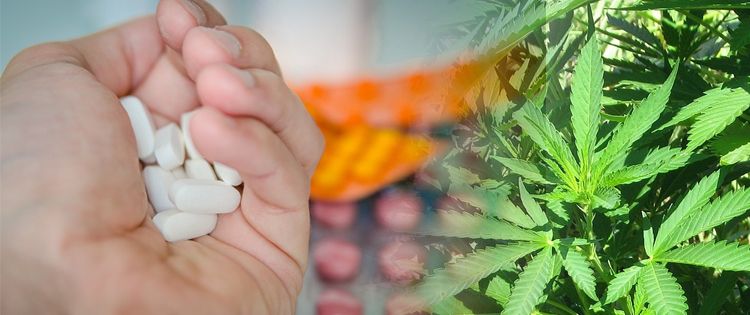It is hard to remember a time when the UK Government has spoken seriously about medical cannabis, let alone actually legalising it. In fact, the UK has been notoriously known for upholding strict prohibition on cannabis for decades. The use of cannabis was criminalised in the UK in 1928 when it was added to the Dangerous Drugs Act 1925.
At this time, cannabis wasn’t a mainstream drug. In fact, many people in the UK were not even aware of its existence. In the 1920’s, Europe was on the brink of a major opium crisis which initially fuelled the first war on drugs. So, cannabis became illegal in the UK with very little debate and no domestic motive.

Cannabis is regulated under the 1971 Misuse of Drugs Act where it is classified as a Class B drug. The Misuse of Drugs Regulation 2001 classes cannabis as a Schedule 1 Controlled Drug, meaning it has no recognised therapeutic value. However, on the 26th July of this year, the Home Office announced that they would allow medical cannabis-based products to be prescribed by doctors within the UK in exceptional circumstances.
This is all because of one boy; Billy Caldwell.
So, what’s Billy’s story?
Billy is an 11-year-old boy from Northern Ireland who suffers from severe epilepsy. Conventional medicines for epilepsy failed to reduce the number of seizures he was having, so his mother decided to trial cannabis as medication.
After both Billy and his mother travelled back and forth from America and later to Canada to stock up on medical cannabis, Billy’s medication was eventually confiscated at Heathrow Airport, leading to huge public outcry.

Billy was given an emergency licence to use the medicine, while officially, medical cannabis products will be available for patients sometime in later Autumn of this year. It’s brilliant that Billy is now allowed to receive his cannabis-based medication and has made way for other patients to start using cannabis-based products too.
So, what cannabis products are actually going to be made available? There is already a cannabis-based spray, Sativex, on the market in the UK. But what the 26th July marked was the rescheduling of cannabis-based products to allow oils, like Billy’s medication, to be prescribed.

Don’t get me wrong, it’s great that the UK has decided to make cannabis oil products more readily available to patients. But what happens to all the people who were incriminated in the pursuit of self-medicating with other forms of cannabis, such as herbal cannabis? Are they still criminals? The UK has prosecuted patients for using cannabis to alleviate their symptoms, but why have we not heard these stories before?
Here are a few of the stories of medical cannabis users who have been taken before the court.
Barry Quayle
One of the leading cases on the UK’s strict prohibition on cannabis was the case of Barry Quayle. Mr Quayle, a double amputee who lost both his legs, suffered from chronic pain.
After authorities searched his home in November 2002, they discovered that he was cultivating cannabis in his loft for medical use. Barry admitted to growing cannabis and using it as an alternative to the diazepam and temazepam his doctors were prescribing him. These medications would ‘knock him out’ and make him incapable of looking after his children.

Throughout his court case, Barry met with several medical professionals who reviewed his medical condition and who said he had been responding well to cannabis. However, in July 2003, at the outset of his trail, the judge stated that he would not accept the defence of necessity, in that it was necessary for him to grow cannabis, and sentenced him to 4 months imprisonment.
Reay Wales
Reay Wales is another noticeable story in the long line of tragic cases of medical cannabis users who weren’t as fortune as Billy Caldwell.
Reay suffered from a wide range of accidents and ailments including 2 broken vertebra, tuberculosis, tendon damage, arthritis, osteoporosis, amongst many others, and was in constant agony.
He was caught growing 20 plants in his house, which he used as a replacement for the morphine his doctor had given him. He said that this prescription medication was leaving him unable to eat and that he found relief in cannabis as it gave him an appetite and the ability to rise above the pain.

What makes his case particularly interesting is that the judge gave the jury the power to decide whether the notion of necessity was to be accepted. If the jury did find that Wales was growing cannabis out of necessity, this would set a whole new precedent for cases to follow. Who knows what could have happened, this could have been the start of legalising medical cannabis…
Graham Kenny
Graham Kenny injured his back at work and used medical cannabis to self-medicate for a couple of years. The accident left him suffering frequent periods of pain that were so severe he was unable to walk, put on clothes or even clean himself.
Graham had taken a variety of medications over the years to treat the constant chronic pain he suffered from, including about 10 conventional painkillers, electric treatment, acupuncture, and when he eventually got depressed, he used antidepressants. When none of the conventional medications worked, he turned to cannabis which he said gave him the fastest relief with the fewest side effects.

Graham was found to be growing 16 plants in his house in 2003. He and his lawyers argued the notion of necessity and provided countless medical experts who advised that cannabis could, in fact, be helping Graham cope with his chronic pain. Unfortunately, the judge dismissed the defence of necessity and convicted him for cultivation and possession of cannabis.
The Future of Legal Cannabis in the UK
It becomes clear, that as time goes by, society as a whole becomes more prepared to look at the therapeutic benefits that cannabis has to offer.
While it is great to see that the United Kingdom is becoming more open to exploring the medical potential that cannabis possesses, it is also disappointing to see how many vulnerable people have been let down by society.

Although the Government has taken steps to legalise the use of medical cannabis, it is only going to be prescribed by specialist doctors, meaning that it is not exactly readily available to all users. The UK still has a long way to go before it allows medical cannabis to become more widely available.
Nevertheless, I’m sure you can see how big a step Billy Caldwell’s case is for the legalisation of medical cannabis in the UK.
I hope that the movement of acceptance continues, that new laws will see convicted medical cannabis users pardoned and compensated for the suffering they have endured.
- The Long Road to Legalising Medical Cannabis in the UK - October 31, 2018


